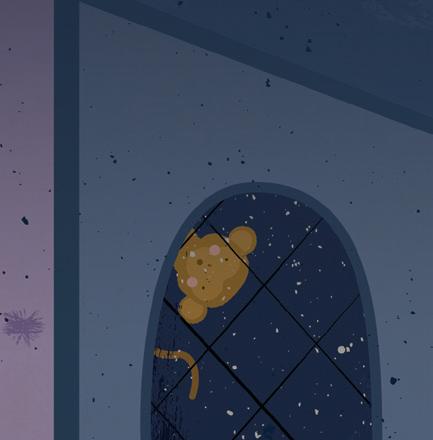
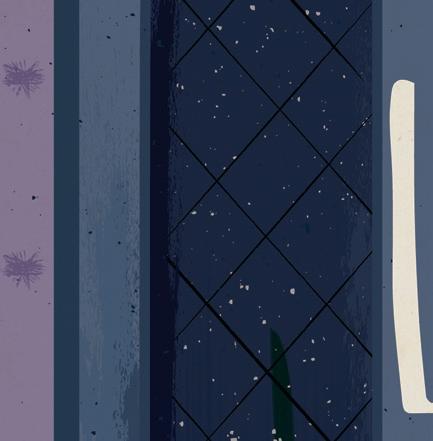
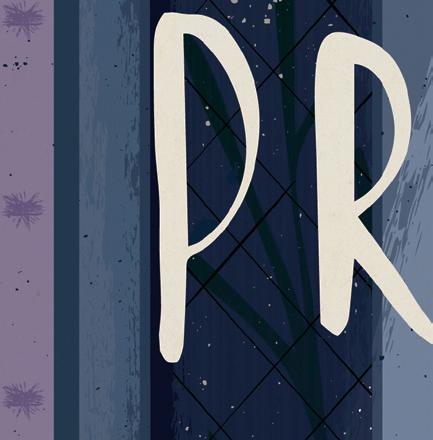
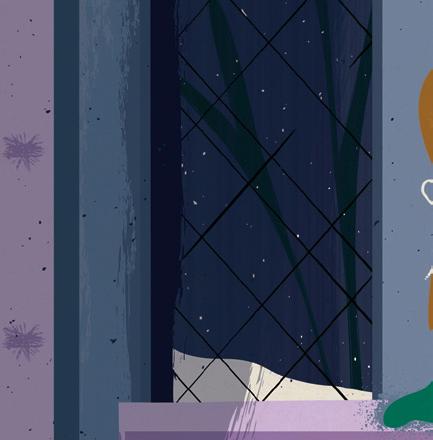
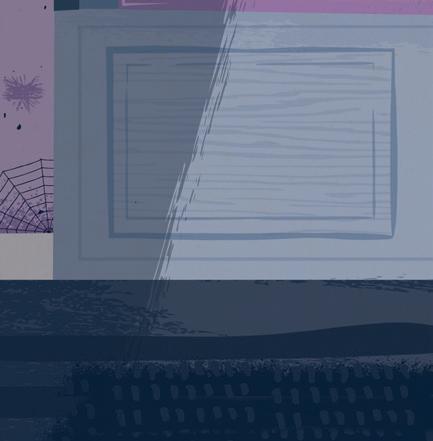
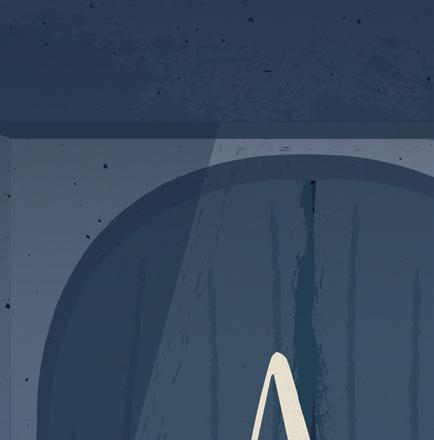
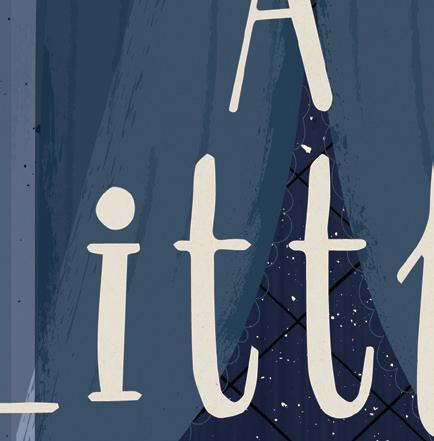
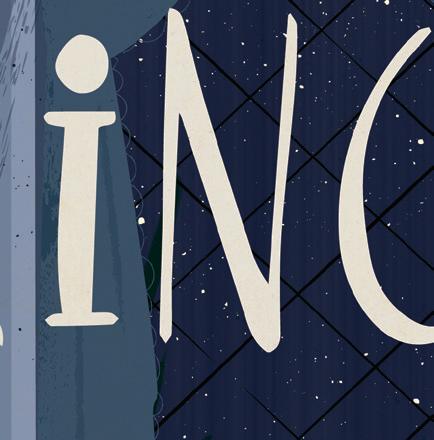
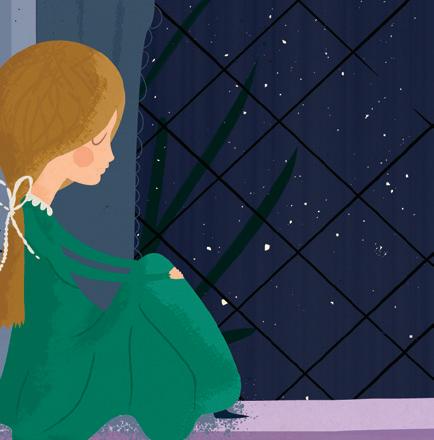

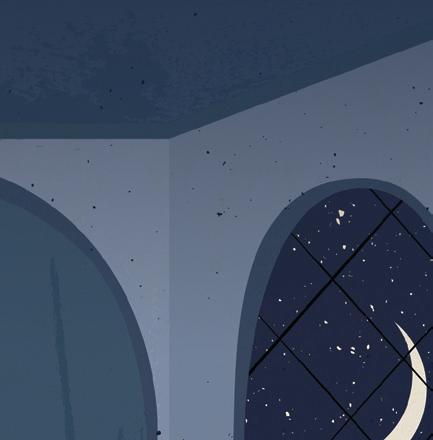












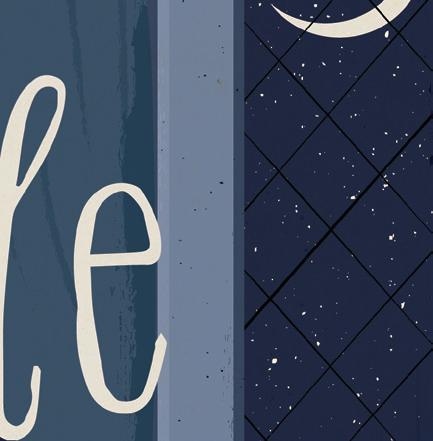
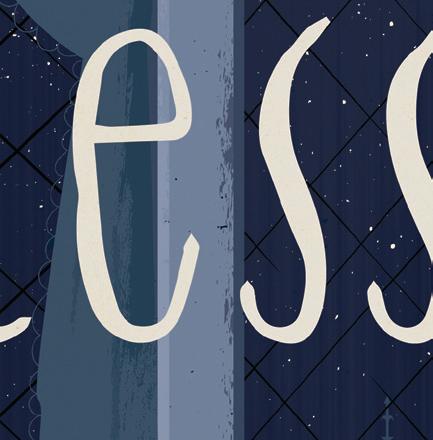
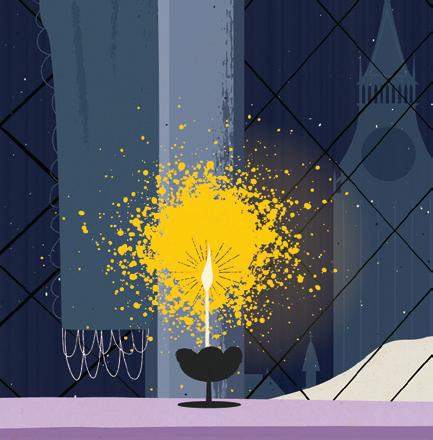

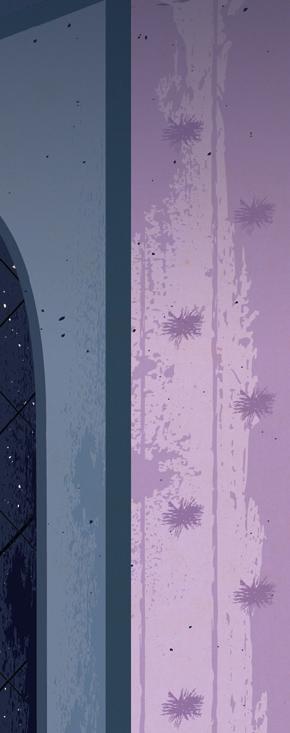
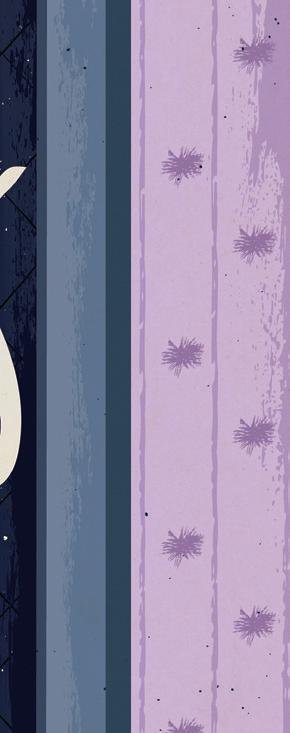
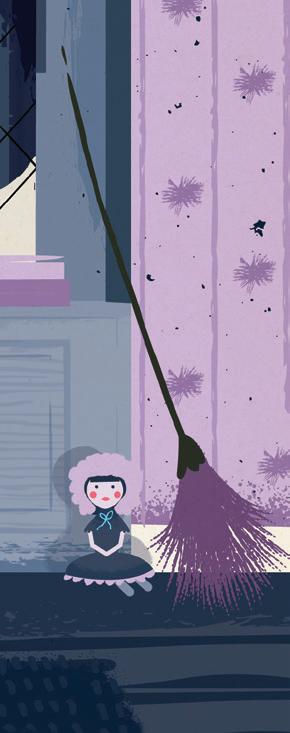
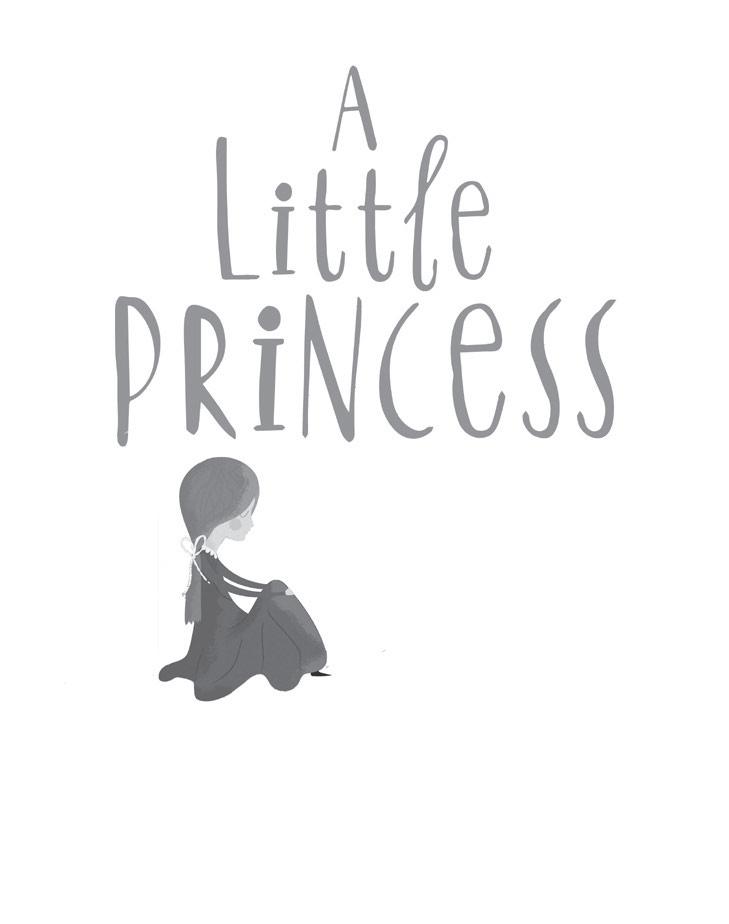
‘Whatever comes,’ she said, ‘cannot alter one thing. If I am a princess in rags and tatters, I can be a princess inside. It would be easy to be a princess if I were dressed in cloth of gold, but it is a great deal more of a triumph to be one all the time when no one knows it.’
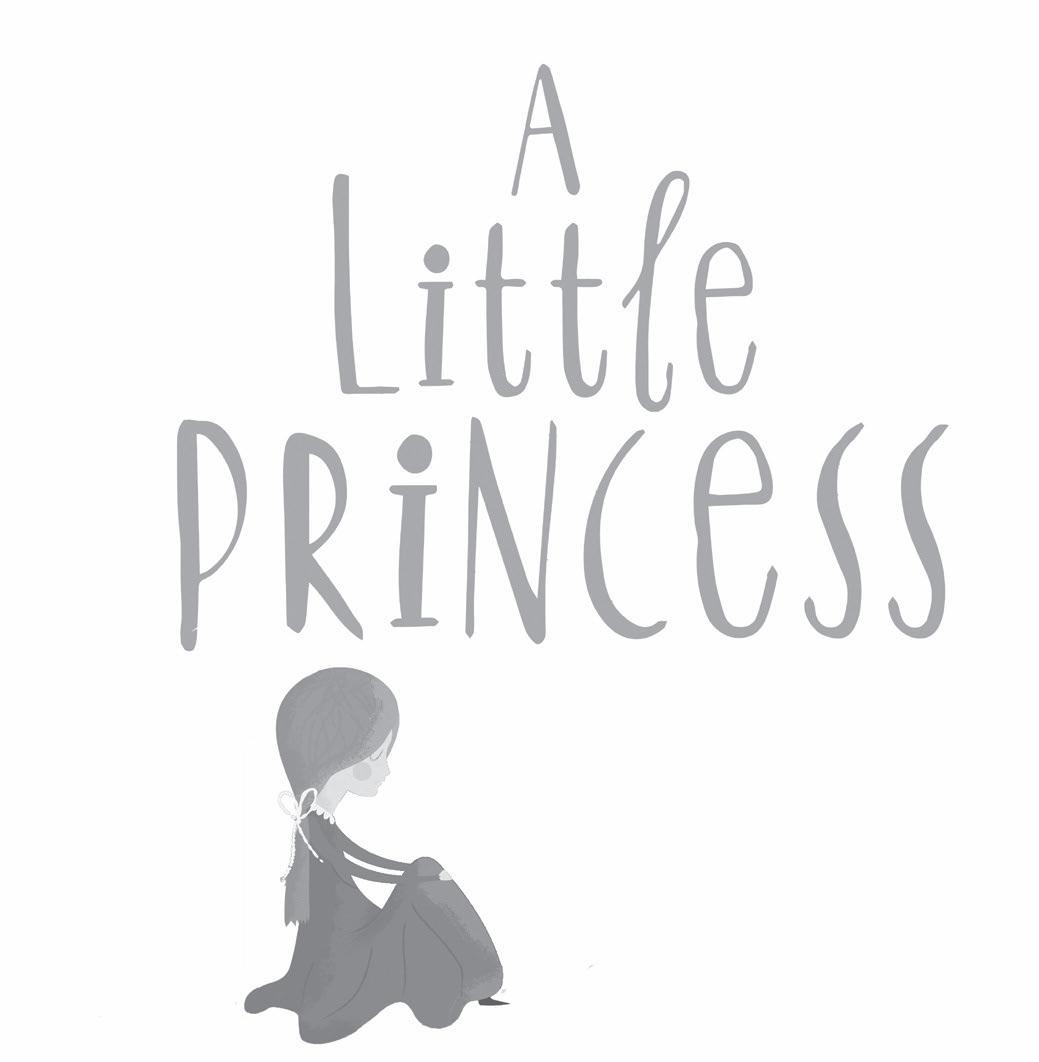
INTRODUCED BY ADELINE YEN MAH
Illustrations by M ARGERY G ILL
Illustrations by M argery G ill
UK | USA | Canada | Ireland | Australia India | New Zealand | South Africa
Puffin Books is part of the Penguin Random House group of companies whose addresses can be found at global.penguinrandomhouse.com.
www.penguin.co.uk www.puffin.co.uk www.ladybird.co.uk
First published 1905
First published in Puffin Books 1961 Reissued 2008, 2015
This edition published 2025
001
Introduction copyright © Adeline Yen Mah, 2008 Endnotes copyright © Penguin Books, 2008
Penguin Random House values and supports copyright. Copyright fuels creativity, encourages diverse voices, promotes freedom of expression and supports a vibrant culture. Thank you for purchasing an authorized edition of this book and for respecting intellectual property laws by not reproducing, scanning or distributing any part of it by any means without permission. You are supporting authors and enabling Penguin Random House to continue to publish books for everyone. No part of this book may be used or reproduced in any manner for the purpose of training artificial intelligence technologies or systems. In accordance with Article 4(3) of the DSM Directive 2019/790, Penguin Random House expressly reserves this work from the text and data mining exception.
Printed and bound in Great Britain by Clays Ltd, Elcograf S.p.A.
The authorized representative in the EEA is Penguin Random House Ireland, Morrison Chambers, 32 Nassau Street, Dublin d02 yh68
A CIP catalogue record for this book is available from the British Library
isbn: 978–0–241–73626–5
All correspondence to: Puffin Books, Penguin Random House Children’s One Embassy Gardens, 8 Viaduct Gardens, London sw11 7bw
Penguin Random Hous e is committed to a sustainable future for our business, our readers and our planet. is book is made from Forest Stewardship Council® certified paper.
intro ducti on b y
Adults and children read books in different ways. Grow nups read for enter tainment whereas youngsters read to learn about life. As a little girl grow ing up in Shanghai, I often read my favourite mar tial ar ts stories over and over, sometimes more than a hundred times. Books became my passion. They had the power to deliver me from my tor tured home-life to magical places where rules were fair and ever yone was equal. In time, the people in my makebelieve world became more real than my cruel stepmother and siblings.
Once, when I was in pr imar y school, my classmate and best fr iend Wu Chun-mei lent me a book that had been tr anslate d from Eng lis h to C hinese. She told me the author was an Eng lishwoman named Frances Hodgson Burnett. I took the book home and read it in one nig ht. To say it changed my life would be an understatement. No other book, before or since, has had such a profound e ff ec t upon me. Be sides stim ulating my i mag ination,
A Little Princess spoke to me on a personal level because I identified so completely w ith the heroine, Sara Crewe. We shared the same fears, encountered similar hardships and foug ht i de ntical battles. Be st of al l, Sar a ne ver sur ren de re d b ut was able t o ove rco m e h er t ro u bles throug h her own effor ts. It made me believe that if I tried hard enoug h, one day I too might succeed in conquer ing my adversit y. More impor tantly, while reading A Little Pr incess I realized for the first time that adults could be wrong in their estimation of a child. Previous to that, I had con s idered my pa re nts to be infallible a nd omnipotent.
I read A Little Princess over and over, keeping it so long that Wu Chun-mei became impatient and demanded its return. Reluctant to relinquish my new-found treasure, I begged to keep it for another two weeks. Laboriously and doggedly, I copied the book word for word into two exercise books during this grace period, committed par ts of it to memor y, and slept w ith it under my pillow until the manuscript became tattered and lost.
Classic children’s tales such as the one told in A Little Pr incess should be cherished and not treated lightly. They co nve y me aning s on nume ro u s le ve l s of th e huma n psyche, par tic ular ly those w hich are impor tant to children. Some contain kernels of truth which may play an impor tant role in developing a child’s mind. Without conscious awareness, children har vest their firmest beliefs, vi
their sense of ethics, their measure of value, their first and last philosophy (so to speak), from such stories.
I never forgot A Little Princess. Sara Crewe’s courage and determination accompanied me ever y step of the way from then on, propelling me forever for wards. I told myself if Sara could finally triumph, then so could I. A Little Princess became a permanent anchor in my life – a beacon of hope that has lasted to this day.
Sara
A French Lesson
Ermengarde
Lottie
Becky
The Diamond Mines
The Diamond Mines Again
In the Attic
Melchisedec
The Indian Gentleman
Ram Dass
The Other Side of the Wall
One of the Populace
What Melchisedec Heard and Saw
The Magic
The Visitor
‘It is the Child!’
‘I Tried Not to Be’
‘Anne’
Once on a dark w inter’s day, when the yellow fog hung so thick and heavy in the streets of London that the lamps were lighted and the shop windows blazed w ith gas as they do at night, an odd-looking little girl sat in a cab with her father, and was dr iven rather slowly through the big thoroughfares.
She sat w ith her feet tucked under her, and leaned against her father, who held her in his arm, as she stared out of the w indow at the passing people w ith a queer oldfashioned thoughtfulness in her big eyes.
She was such a little girl that one did not expect to see such a look on her small face. It would have been an old look for a child of twelve, and Sara Crewe was only seven. The fact was, however, that she was always dreaming and thinking odd things, and could not herself remember any time when she had not been thinking things about grown-up people and the world they belonged to. She felt as if she had lived a long, long time.
At this moment she was remembering the voyage she
had just made from Bombay w ith her father, Captain Crewe. She was thinking of the big ship, of the lascars passing silently to and fro on it, of the children playing about on the hot deck, and of some young officers’ wives who used to try to make her talk to them and laugh at the things she said.
Principally, she was thinking of what a queer thing it was that at one time one was in India in the blazing sun, and then in the middle of the ocean, and then driv ing in a strange vehicle through strange streets where the day was as dark as the night. She found this so puzzling that she moved closer to her father.
‘Papa,’ she said in a low, mysterious little voice which was almost a whisper, ‘papa.’
‘What is it, darling?’ Captain Crewe answered, holding her closer and looking down into her face. ‘What is Sara thinking of?’
‘Is this the place?’ Sara whispered, cuddling still closer to him. ‘Is it, papa?’
‘Yes, little Sara, it is. We have reached it at last.’ And though she was only seven years old, she knew that he felt sad when he said it.
It seemed to her many years since he had begun to prepare her mind for ‘the place’, as she always called it. Her mother had died when she was born, so she had never know n or missed her. Her young, handsome, rich, petting father seemed to be the only relation she had in the world.
They had always played together and been fond of each other. She only knew he was rich because she had heard people say so when they thought she was not listening, and she had also heard them say that when she grew up she would be rich too. She did not know all that being rich meant. She had always lived in a beautiful bungalow, and had been used to seeing many ser vants who made salaams to her and called her ‘Missee Sahib’, and gave her her own way in ever ything. She had had toys and pets and an ayah who worshipped her, and she had gradually learned that people who were rich had these things. That, however, was all she knew about it.
During her shor t life only one thing had troubled her, and that thing was ‘the place’ she was to be taken to some day. The climate of India was ver y bad for children, and as soon as possible they were sent away from it – generally to Eng land and to school. She had seen other children go away and had heard their fathers and mothers talk about the letters they received from them. She had known that she would be obliged to go also, and though sometimes her father’s stories of the voyage and the new countr y had attracted her, she had been troubled by the thought that he could not stay w ith her.
‘Couldn’t you go to that place w ith me, papa?’ she had asked when she was five years old. ‘Couldn’t you go to school too? I would help you w ith your lessons.’
‘But you will not have to stay for a very long time, little
Sara,’ he had always said. ‘You will go to a nice house where there will be a lot of little girls, and you will play together, and I will send you plenty of books, and you will grow so fast that it will seem scarcely a year before you are big enough and clever enough to come back and take care of papa.’
She had liked to think of that. To keep the house for her father ; to ride with him and sit at the head of his table when he had dinner-par ties; to talk to him and read his books – that would be what she would like most in the world, and if one must go away to ‘the place’ in Eng land to attain it, she must make up her mind to go. She did not care very much for other little girls, but if she had plenty of books she could console herself. She liked books more than anything else, and was, in fact, always inventing stories of beautiful things, and telling them to herself. Sometimes she had told them to her father, and he had liked them as much as she did.
‘Well, papa, ’ she said softly, ‘if we are here I suppose we must be resigned.’
He laughed at her old-fashioned speech and kissed her. He was real ly not at all resig n ed hi ms elf, th oug h he knew he must keep that a secret. His quaint little Sara had been a great companion to him, and he felt he should be a lonely fellow when, on his return to India, he went into his bungalow know ing he need not expect to see the small figure in its white frock come forward to meet him. So he held her ver y closely in his arm as the cab rolled into
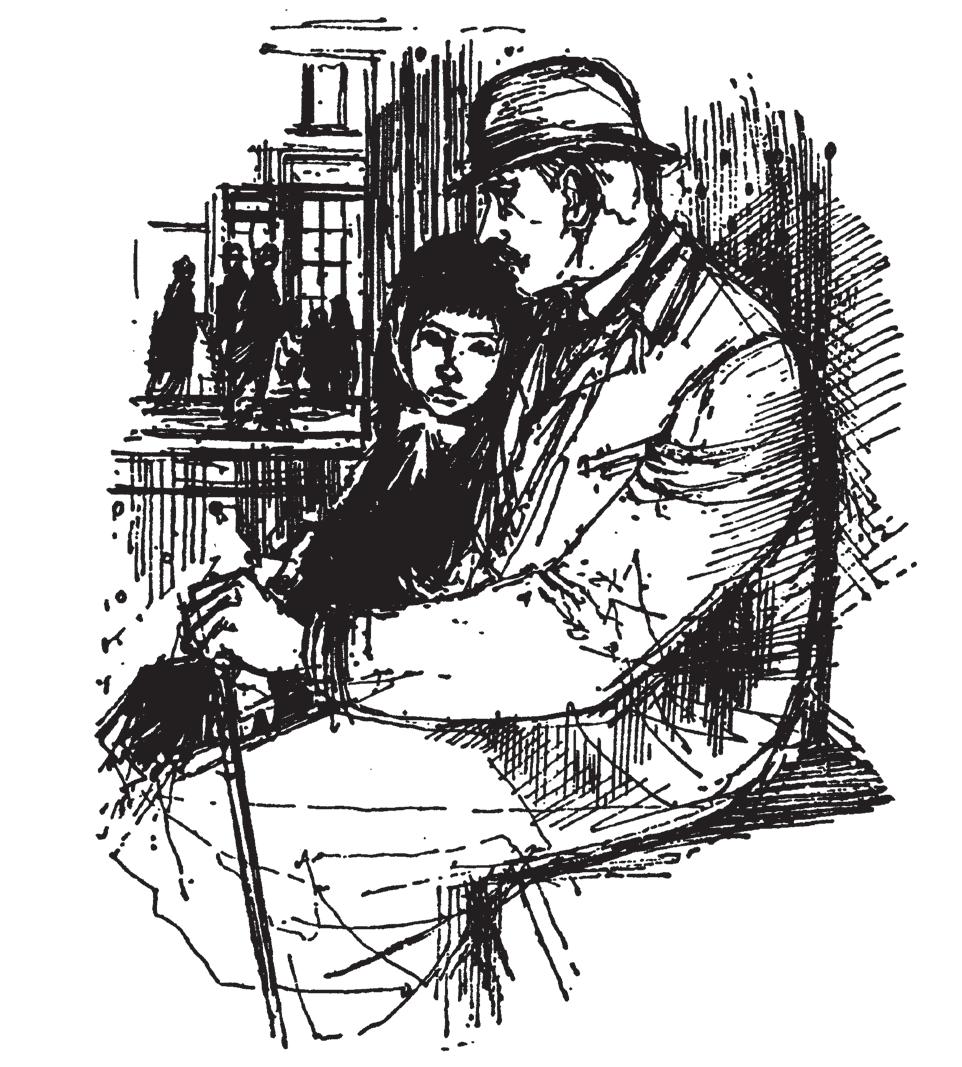
the big, dull square in which stood the house which was their destination.
It was a big , dull, brick house, exactly like all the others in its row, but that on the front door there shone a brass plate on which was engraved in black letters:
M
ISS M INCHIN , Select Seminar y for Young Ladies.
‘Here we are, Sara,’ said Captain Crewe, making his voice sound as cheerful as possible. Then he lifted her out of the cab and they mounted the steps and rang the bell. Sara often thought afterwards that the house was somehow exactly like Miss Minchin. It was respectable and wellfurnished, but ever ything in it was ugly ; and the ver y armchairs seemed to have hard bones in them. In the hall every thing was hard and polished – even the red cheeks of the moon face of the tall clock in the corner had a severe varnished look. The drawing-room into which they were ushered was covered by a carpet with a square pattern upon it, the chairs were square, and a heavy marble time piece stood upon the heavy marble mantel.
As she sat down in one of the stiff mahogany chairs, Sara cast one of her quick looks about her.
‘I don’t like it, papa, ’ she said. ‘But then I dare say soldiers –even brave ones – don’t really like going into battle.’
Captain Crewe laughed outright at this. He was young and full of fun, and he never tired of hearing Sara’s queer speeches.
‘Oh, little Sara,’ he said. ‘What shall I do when I have no one to say solemn things to me? No one else is quite as solemn as you are. ’
‘B ut why do so lemn thing s make you laug h so?’ inquired Sara.
‘Because you are such fun when you say them,’ he answered, laughing still more. And then suddenly he swept
her into his arms and kissed her ver y hard, stopping laughing all at once and looking almost as if tears had come into his eyes.
It was just then that Miss Minchin entered the room. She was ver y like her house, Sara felt: tall and dull, and respectable and ugly. She had large, cold, fishy eyes, and a large, cold, fishy smile. It spread itself into a ver y large smile when she saw Sara and Captain Crewe. She had heard a great many desirable things of the young soldier from the lady who had recommended her school to him. Among other things, she had heard that he was a rich father who was w illing to spend a great deal of money on his little daughter.
‘It will be a great priv ilege to have charge of such a beautiful and promising child, Captain Crewe,’ she said, taking Sara’s hand and stroking it. ‘Lady Meredith has told me of her unusual cleverness. A clever child is a g reat treasure in an establishment like mine.’
Sar a stood quietly, w ith her e ye s fi xe d up on Mi s s Minchin’s face. She was thinking something odd, as usual.
‘Why does she say I am a beautiful child?’ she was thinking. ‘I am not beautiful at all. Colonel Grange’s little girl, Isobel, is beautiful. She has dimples and rose-coloured cheeks, and long hair the colour of gold. I have shor t black hair and green eyes; besides which, I am a thin child and not fair in the least. I am one of the ug liest children I ever saw. She is beginning by telling a stor y.’
She was mistaken, however, in thinking she was an ugly child. She was not in the least like Isobel Grange, who had been the beauty of the regiment, but she had an odd charm of her own. She was a slim, supple creature, rather tall for her age, and had an intense, attractive little face. Her hair was heavy and quite black and only curled at the tips; her e yes were greenish g re y, it is t rue, but the y werebig, wonderful eyes with long , black lashes, and though she herself did not like the colour of them, many other people did. Still she was ver y firm in her belief that she was an ug ly little girl, and she was not at all elated by Miss Minchin’s flatter y.
‘I should be telling a stor y if I said she was beautiful,’ she thought, ‘and I should know I was telling a stor y. I believe I am as ugly as she is – in my way. What did she say that for?’
After she had known Miss Minchin longer she learned why she had said it. She discovered that she said the same thing to each papa and mamma who brought a child to her school.
Sara stood near her father and listened while he and Miss Minchin talked. She had been brought to the seminar y because Lady Meredith’s two little girls had been educated there, and Captain Crewe had a great respect for Lady Meredith’s experience. Sara was to be what was known as ‘a parlour-boarder’, and she was to enjoy even greater privileges than parlour-boarders usually did. She was to
have a pretty bedroom and sitting-room of her own; she was to have a pony and a carriage, and a maid to take the place of the ayah who had been her nurse in India.
‘I am not in the least anxious about her education,’ Captain Crewe said, with his gay laugh, as he held Sara’s hand and patted it. ‘The difficulty will be to keep her from learning too fast and too much. She is always sitting w ith her little nose burrow ing into books. She doesn’t read them, Miss Minchin; she gobbles them up as if she were a little wolf instead of a little girl. She is always star v ing for new books to gobble, and she wants grow n-up books –gre at, bi g, fa t o nes – Fren ch and Ger man as we ll as Eng lish – histor y and biography and poets, and all sor ts of things. Drag her away from her books when she reads too much. Make her ride her pony in the Row or go out and buy a new doll. She ought to play more with dolls.’
‘Papa,’ said Sara. ‘You see, if I went out and bought a new doll ever y few days I should have more than I could be fond of. Dolls ought to be intimate friends. Emily is going to be my intimate friend.’
Captain Cre we looked at Miss Minchin and Miss Minchin looked at Captain Crewe.
‘Who is Emily?’ she inquired.
‘Tell her, Sara,’ Captain Crewe said, smiling.
Sara’s green-grey eyes looked ver y solemn and quite soft as she answered.
‘She is a doll I haven’t got yet,’ she said. ‘She is a doll
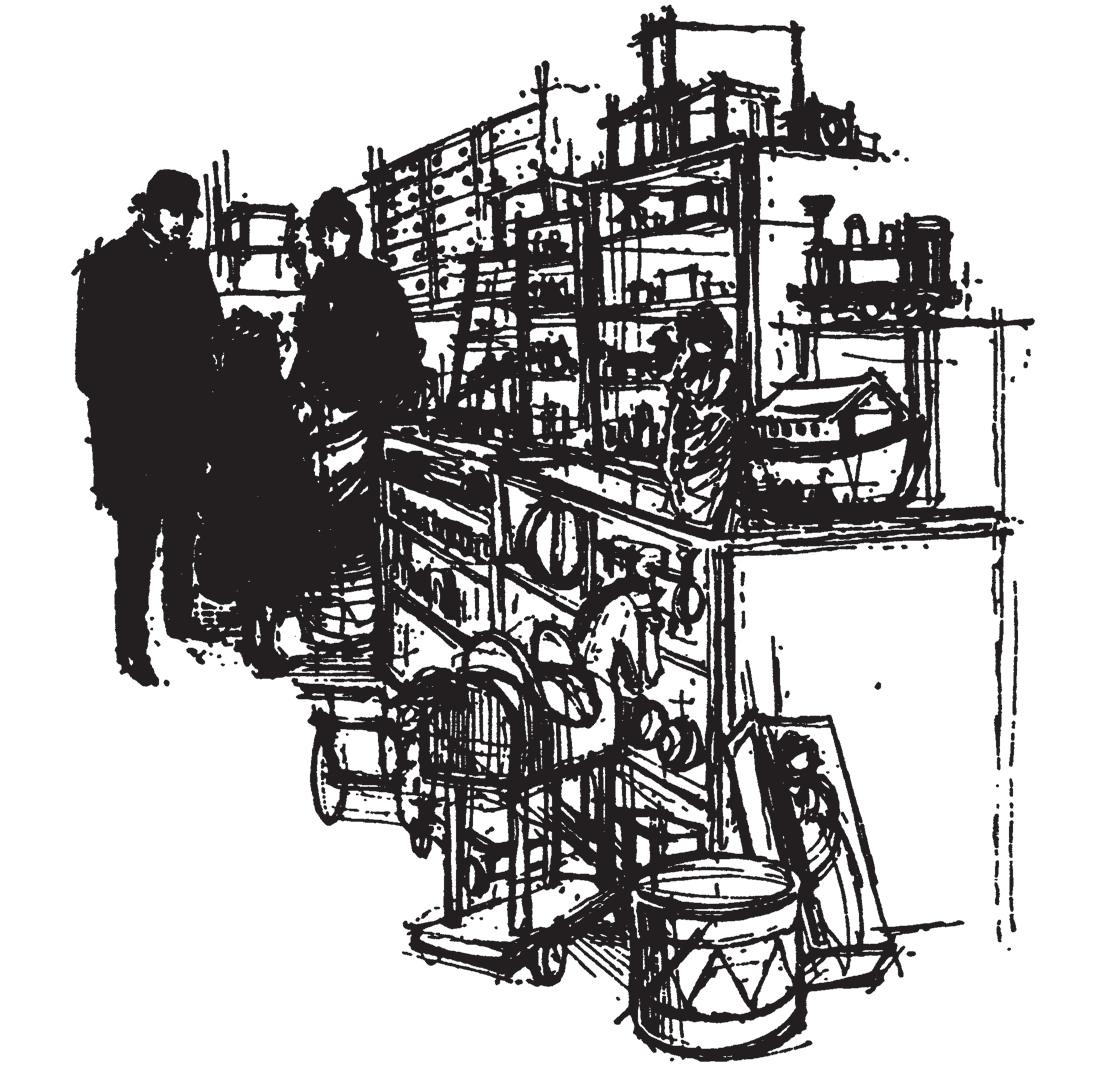
papa is going to buy for me. We are going out together to find her. I have called her Emily. She is going to be my fr iend when papa is gone. I want her to talk to about him.’
Miss Minchin’s large, fishy smile became ver y flattering indeed.
‘What an original child!’ she said. ‘What a darling little creature!’
‘Yes,’ said Captain Crewe, drawing Sara close. ‘She is a
darling little creature. Take great care of her for me, Miss Minchin.’
Sara stayed w ith her father at his hotel for several days; in fact, she remained w ith him until he sailed away again to India. The y went out and v isite d many big shops together, and bought a great many things. They bought, indeed, a great many more things than Sara needed; but Captain Crewe was a rash, innocent young man, and wanted his little girl to have every thing she admired and every thing he admired himself, so between them they collected a wardrobe much too grand for a child of seven. There were velvet dresses trimmed w ith costly furs, and lace dresses, and embroidered ones, and hats w ith great, soft ostrich feathers, and ermine coats and muffs, and boxes of tiny gloves and handkerchiefs and silk stockings in such abundant supplies that the polite young women behind the counters whispered to each other that the odd little girl w ith the big, solemn eyes must be at least some foreign princess – perhaps the little daughter of an Indian rajah.
And at last they found Emily, but they went to a number of toy-shops and looked at a great many dolls before they finally discovered her.
‘I want her to look as if she wasn’t a doll really,’ Sara said. ‘I want her to look as if she listens when I talk to her. The trouble w ith dolls, papa’ – and she put her head on one side and reflected as she said it – ‘the trouble w ith
dolls is that they never seem to hear.’ So they looked at big ones and little ones – at dolls w ith black eyes and dolls with blue – at dolls w ith brow n curls and dolls w ith golden braids, dolls dressed and dolls undressed.
‘You see,’ Sara said, when they were examining one who had no clothes. ‘If, when I find her, she has no frocks, we can take her to a dressmaker and have her things made to fit. They will fit better if they are tried on.’
After a number of disappointments they decided to walk and look in at the shop w indows and let the cab follow them. They had passed two or three places without even going in, when, as they were approaching a shop which was really not a ver y large one, Sara suddenly star ted and clutched her father’s arm.
‘Oh, papa!’ she cried. ‘There is Emily!’
A flush had risen to her face, and there was an expression in her g reen -g rey eye s as if sh e h ad just reco gn i ze d someone she was intimate with and fond of.
‘She is actually waiting for us!’ she said. ‘Let us go in to her.’
‘Dear me!’ said Captain Crewe. ‘I feel as if we ought to have someone to introduce us. ’
‘You must introduce me and I w ill introduce you,’ said Sara. ‘But I knew her the minute I saw her – so perhaps she knew me, too.’
Perhaps she had known her. She had cer tainly a ver y intelligent expression in her eyes when Sara took her in
her arms. She was a large doll, but not too large to carr y about easily ; she had naturally curling golden-brow n hair, which hung like a mantle about her, and her eyes were a deep, clear, grey blue, with soft, thick eyelashes which were real eyelashes and not mere painted lines.
‘Of course, ’ said Sara, looking into her face as she held her on her knee – ‘of course, papa, this is Emily.’
So Emily was bought and actually taken to a children’s outfitter’s shop, and measured for a wardrobe as g rand as Sara’s ow n. She had lace frocks, too, and velvet and mu s lin ones, an d hats and coa t s an d beautiful lacetr immed underclothes, and g loves and handkerchiefs and furs.
‘I should like her always to look as if she was a child with a good mother,’ said Sara. ‘I’m her mother, though I am going to make a companion of her.’
Captain Crewe would really have enjoyed the shopping tremendously, but that a sad thought kept tugging at his hear t. This all meant that he was going to be separated from his beloved, quaint little comrade.
He got out of his bed in the middle of that night and went and stood looking down at Sara, who lay asleep w ith Emily in her arms. Her black hair was spread out on the pillow and Emily’s golden-brown hair mingled w ith it; both of them had lace-ruffled night-gow ns, and both had long eyelashes which lay and curled up on their cheeks. Emily looked so like a real child that Captain Crewe felt
glad she was there. He drew a big sigh and pulled his moustache w ith a boyish expression.
‘Heigh-ho, little Sara!’ he said to himself. ‘I don’t believe you know how much your daddy w ill miss you.’
The next day he took her to Miss Minchin’s and left her there. He was to sail the next morning. He explained to Miss Minchin that his solicitors, Messrs. Barrow & Skipwor th, had charge of his affairs in Eng land, and would give her any advice she wanted, and that they would pay the bills she sent in for Sara’s expenses. He would w rite to Sara tw ice a week, and she was to be given ever y pleasure she asked for.
‘She is a sensible little th ing , and she ne ver wants any thing it isn’t safe to give her,’ he said.
Then he went with Sara into her little sitting-room, and they bade each other good-bye. Sara sat on his knee and held the lapels of his coat in her small hands, and looked long and hard at his face.
‘Are you learning me by hear t, little Sara?’ he said, stroking her hair.
‘No,’ she answered. ‘I know you by hear t. You are inside my hear t.’ And they put their arms round each other, and kissed as if they would never let each other go.
When the cab drove away from the door, Sara was sitting on the floor of her sitting-room, with her hands under her chin and her eyes follow ing it until it had turned the corner of the square. Emily was sitting by her, and she
looked after it, too. When Miss Minchin sent her sister, Miss Amelia, to see what the child was doing, she found she could not open the door.
‘I have locked it,’ said a queer, polite little voice from inside. ‘I want to be quite by myself, if you please.’
Miss Amelia was fat and dumpy, and stood ver y much in awe of her sister. She was really the better-natured person of the two, but she never disobeyed Miss Minchin. She went downstairs again, looking almost alarmed.
‘I never saw such a funny, old-fashioned child, sister,’ she said. ‘She has locked herself in, and she is not making the least par ticle of noise.’
‘It is much better than if she kicked and screamed, as some of them do,’ Miss Minchin answered. ‘I expected that a child as much spoiled as she is would set the whole house in an uproar. If ever a child was given her own way in ever ything, she is.’
‘I’ve been opening her trunks and putting her things away, ’ said Miss Amelia. ‘I never saw anything like them –sable and ermine on her coats, and real Valenciennes lace on her underclothing. You have seen some of her clothes. What do you think of them?’
‘I think the y are perfectly r idiculous,’ replied Miss Minchin sharply, ‘but they will look ver y well at the head of the line when we take the school-children to church on Sunday. She has been prov ided for as if she were a little pr incess.’
And upstairs in the locked room Sara and Emily sat on the floor and stared at the corner round which the cab had disappeared, while Captain Crewe looked backward, wav ing and kissing his hand as if he could not bear to stop.
When Sara entered the schoolroom the next morning everybody looked at her with wide, interested eyes. By that time ever y pupil – from Lavinia Herbert, who was nearly thirteen and felt quite grown up, to Lottie Legh, who was only just four and the baby of the school – had heard a great deal about her. They knew ver y certainly that she was Miss Minchin’s show pupil and was considered a credit to the establishment. One or two of them had even caught a glimpse of her French maid, Mariette, who had arrived the evening before. Lavinia had managed to pass Sara’s room when the door was open, and had seen Mariette opening a box which had arrived late from some ship.
‘It was full of petticoats with lace frills on them – frills and frills,’ she whispered to her friend Jessie as she bent over her geography. ‘I saw her shaking them out. I heard Miss Minchin say to Miss Amelia that her clothes were so grand that they were ridiculous for a child. My mamma says that children should be dressed simply. She has got one of those petticoats on now. I saw it when she sat down.’
‘She has silk stockings on!’ whispered Jessie, bending over her geography also. ‘And what little feet! I never saw such little feet.’
‘Oh,’ sniffed Lavinia spitefully, ‘that is the way her slippers are made. My mamma says that even big feet can be made to look small if you have a clever shoemaker. I don’t think she is pretty at all. Her eyes are such a queer colour.’
‘She isn’t pretty as other pretty people are,’ said Jessie, stealing a glance across the room, ‘but she makes you want to look at her again. She has tremendously long eyelashes, but her eyes are almost green.’
Sara was sitting quietly in her seat, waiting to be told what to do. She had been placed near Miss Minchin’s desk. She was not abashed at all by the many pairs of eyes watching her. She was interested, and looked back quietly at the children who looked at her. She wondered what they were thinking of, and if they liked Miss Minchin, and if they cared for their lessons, and if any of them had a papa at all like her own. She had had a long talk w ith Emily about her papa that morning.
‘He is on the sea now, Emily,’ she had said. ‘We must be ver y great friends to each other and tell each other things. Emily, look at me. You have the nicest eyes I ever saw – but I w ish you could speak.’
Sh e was a child full of im ag ining s and whimsical thoughts, and one of her fancies was that there would be a great deal of comfor t in even pretending that Emily was
alive and really heard and understood. After Mariette had dressed her in her dark-blue schoolroom frock and tied her hair w ith a dark-blue ribbon, she went to Emily who sat in a chair of her own, and gave her a book.
‘You can read that while I am downstairs,’ she said; and seeing Mariette looking at her curiously, she spoke to her with a serious little face.
‘What I believe about dolls,’ she said, ‘is that they can do things they w ill not let us know about. Perhaps, really, Emily can read and talk and walk, but she w ill only do it when people are out of the room. That is her secret. You see, if people knew that dolls could do things, they would make them work. So, perhaps, they have promised each other to keep it a secret. If you stay in the room, Emily will just sit there and stare; but if you go out, she w ill begin to read, perhaps, or go and look out of the w indow. Then if she heard either of us coming, she would just run back and jump into her chair and pretend she had been there all the time.’
‘Comme elle est drôle!’ Mariette said to herself; and when she went downstairs she told the head housemaid about it. But she had already begun to like this odd little g irl who had such an intelligent small face and such perfect manners. She had taken care of children before who were not so polite. Sara was a ver y fine little person, and had a gentle, ap preciative way of say ing: ‘If yo u please, Mariette,’ ‘ Thank you, Mariette,’ which was ver y charming.
Mariette told the head housemaid that she thanked her as if she was thanking a lady.
‘Elle a l’air d’une pr incesse, cette petite,’ she said. Indeed, she was ver y much pleased w ith her new little mistress and liked her place greatly.
After Sara had sat in her seat in the schoolroom for a few minutes, being looked at by the pupils, Miss Minchin rapped in a dignified manner upon her desk.
‘Young ladies,’ she said, ‘I wish to introduce you to your new companion.’ All the little girls rose in their places, and Sar a rose also. ‘I shall expect you all to be ver y agreeable to Miss Crewe; she has just come to us from a great distance – in fact, from India. As soon as lessons are over you must make each other’s acquaintance.’
The pupils bowed ceremoniously, and Sara made a little courtesy, and then they sat down and looked at each other again.
‘Sara,’ said Miss Minchin in her schoolroom manner, ‘come here to me. ’
She had taken a book from the desk and was turning over its leaves. Sara went to her politely.
‘As your papa has engaged a French maid for you,’ she began, ‘I conclude that he w ishes you to make a special study of the French language.’
Sara felt a little awkward.
‘I think he engaged her,’ she said, ‘because he – he thought I would like her, Miss Minchin.’
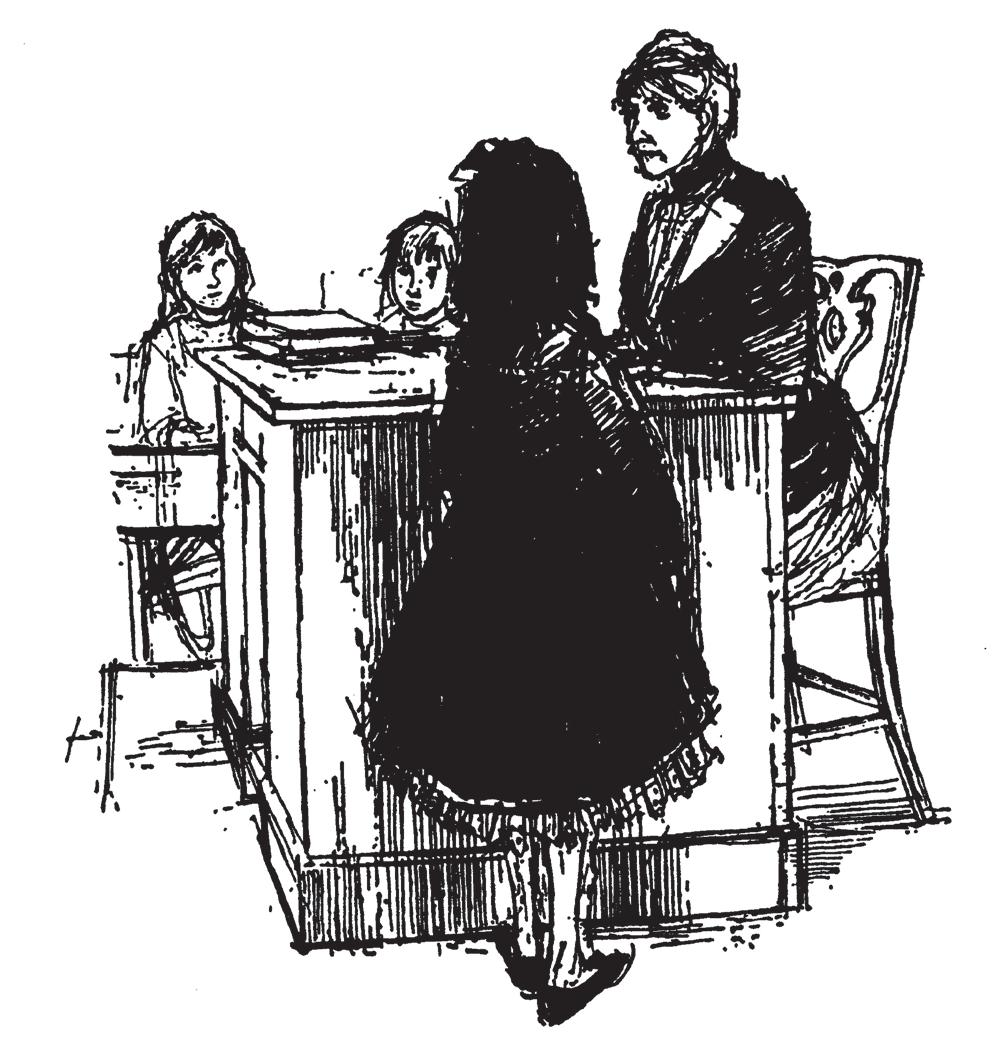
‘I am afraid,’ said Miss Minchin, with a slightly sour smile, ‘that you have been a ver y spoiled little girl and always imagine that things are done because you like them. My impression is that your papa w ished you to learn French.’
If Sara had been older or less punctilious about being quite polite to people, she could have explained herself in a ver y few words. But, as it was, she felt a flush r ising on her cheek s. Mi s s Minchin was a ver y se ve re a nd